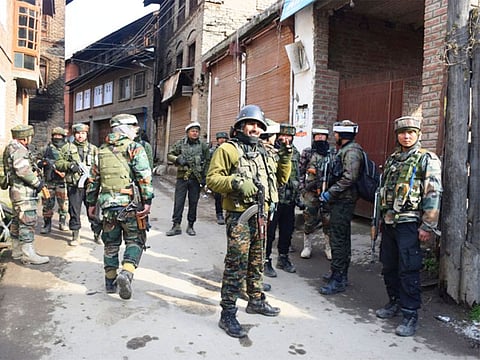Caught right in the middle of a war zone
Conflicts appear stimulating only to those who haven’t experienced its terrible fallout

When I was growing up, I read accounts of war reportage with a mix of fascination and trepidation.
I often caught myself thinking: What was it like to be a war reporter? Considered an especially dangerous form of journalism, war correspondents usually report from the heart of a conflict.
There are lots of risks, yes, but journalists have the responsibility to tell the truth. When you think of heart-rending reports filed from the frontier, names like Robert Fisk, Christiane Amanpour, John Simpson, Ryszard Kapuscinski and many others spring to mind. These are journalists with stellar reputations, who have covered some of the greatest wars in the 20th and 21st century.
It never occurred to me that I might find myself in the thick of action some day. But things don’t always go according to plan. In India recently for a reporting assignment (elections are planned in April-May 2019), I was caught in the middle of a conflict zone.
Pain and confusion
India and Pakistan are nuclear-armed nations, and the very notion of the two countries going to war sends a chill down the spine of world capitals and defence tsars alike.
No sooner had I touched down in Kashmir (quite literally the theatre of war), than there were air strikes launched by India on what was said to be militant camps in Pakistan.
It was the first time in decades (since the ‘70s) that Indian Air Force fighter jets crossed the Line of Control (LoC), flying into Pakistani territory, dropping bombs, and prompting retaliatory strikes from the Pakistan Air Force the next day.
Air strikes were followed by artillery firing along the border. Suddenly Kashmir was the focus of global attention. There was panic and confusion in the valley. The local government started issuing urgent advisories. The military started deploying.
There was no time to lose. I wasn’t thinking of war reporting but my basic journalistic instincts kicked in.
Before the internet would be snapped (it was already spotty), I had to file first-hand reports for Gulf News from the thick of the action. Realising that no other newspaper from the Middle East had a correspondent in Srinagar yet, I started sending dispatches to the newsroom.
‘Which planet do you live on?’
I drove to a former chief minister’s home. By now cars had started queuing up outside petrol stations. I stopped by to ask a frenetic motorist what was going on. “Which planet do you live on?” he barked. “There is going to be a bloody war. Better refuel your car.” I told the former chief minister what I saw on the way. Equally exasperated, and a shade anxious, he expressed helplessness before turning to me, “What do you think will happen now?”
It is often said that war appears stimulating only to those who haven’t experienced it. To see traumatised people leave their homes, along with small children in the bitter cold, is distressing. I also saw ordinary people, unsettled, panic-buying like there was no tomorrow. I saw hospitals stocking up on essentials in the event of an all-out war. I saw grim-faced soldiers standing guard on rainy streets when nary a soul was out.
While leaving Kashmir just in time before the only airport in the region closed down to all air traffic, I felt a pang in my heart. It was at that moment that I realised the futility of war and the ethical dilemma that journalists covering conflicts face. Only if TV anchors and studio warriors, sitting cosily in faraway newsrooms and beating war drums at the prime time, understood the devastating consequences of war.


